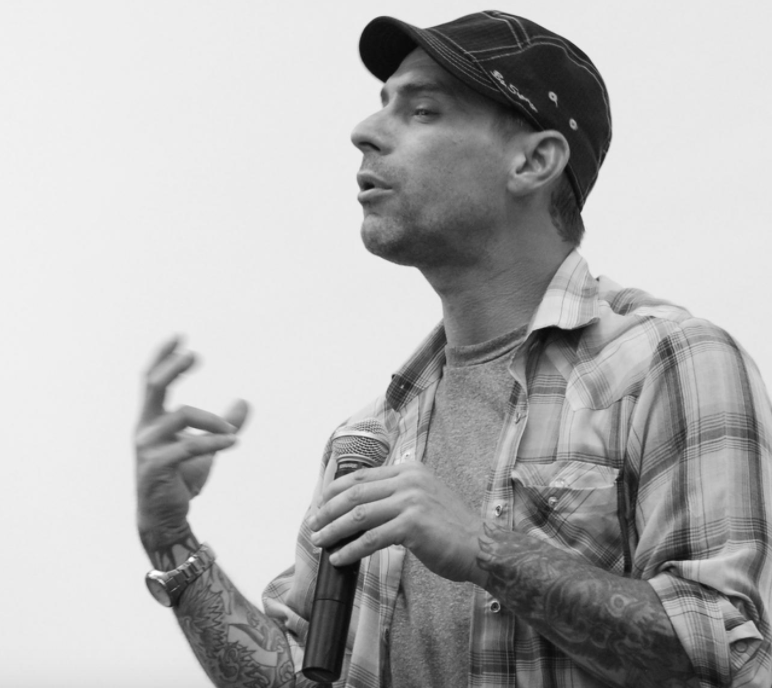Jonathan Kaner ’18 and Julia Rosier ’18
The Anti-Defamation League (ADL) held an assembly for sophomores and juniors on Wednesday March 8, where guest speaker and former Neo-Nazi Frank Meeink told the story of his past to teach students about tolerance.
The main purpose of the assembly was to teach the students about the pyramid of hate in an effort to make the Staples community more united. The pyramid presented to students the different tiers of hate from bias and stereotyping to the highest level of genocide.
Meeink unraveled the story of his childhood and teenage life growing up in South Philadelphia. As a child, he was abused by his stepfather and not cared for by his mother. After moving in with his father, Meeink became a skinhead influenced by his older cousin.
Throughout his story, Meeink kept an upbeat tone and constantly made the students and faculty laugh. “I liked how he told his life story with a more comical spin on it,” Grace Futterman ’19 said. “I thought it kept the audience connected and interested.”
As Meeink’s story continued, his hate for minorities grew weaker and weaker. As he concluded, Meeink defected from the white supremacy movement. The students and faculty applauded for a man who genuinely changed for the better.
“His experiences and story were extremely powerful and interesting,” Abi Genser ’18 said. “His message was definitely powerful, and he was very raw and real, which was refreshing.”
Today, Meeink continues to spread his message through the ADL, as well as to the children he is a hockey coach for.
Zack Cooper ’18 felt as though the assembly was very poorly executed and hypocritical. “They had a three hour presentation telling us to accept and respect everyone and everything,” Cooper said. “Then at the end the women said they’re not telling you how to think.”
On the contrary, Genser, who spoke on behalf of the Israeli Culture Club, saw the event as a success. “It went really well considering it was the first time we ever did something like that,” she said.
Following Meeink’s story, the leaders of the assembly conducted a session in which students from the audience could share their experiences with hate speech and discrimination in the Staples community.
Rohan Goswami ’18 was one of the students who spoke, and did so because he “felt like a lot of the experiences that kids were sharing weren’t accurate reflections of my experience at Staples.” Goswami also believes that although the event was well intentioned, the administration lacked the understanding of the major issues at Staples.
“Bullying in the traditional sense isn’t a thing at Staples and they’re responding to issues that don’t exist instead of addressing the ones that do,” he said.
However, Futterman reflected differently. “I really liked how there was an open mic for students,” she said. “I also thought that helped with making the assembly more personable.”
Olivia Payne ’18 stepped up to the mic to talk about how the school needs to be more supportive of others’ political opinions. “I hope teachers and administrators who heard me will take it into consideration and start trying to do something to work with it,” she said.














































